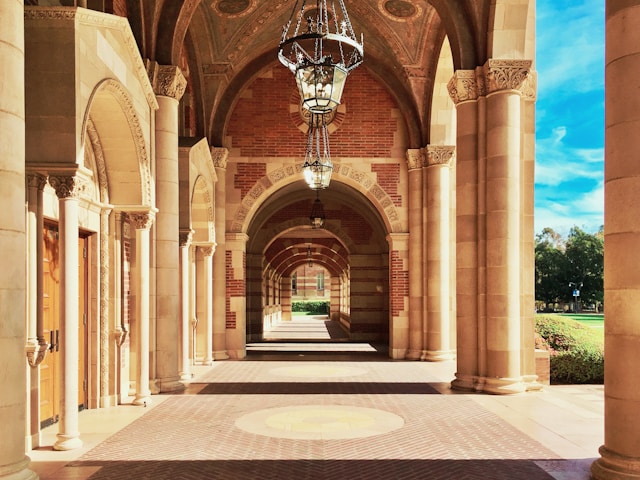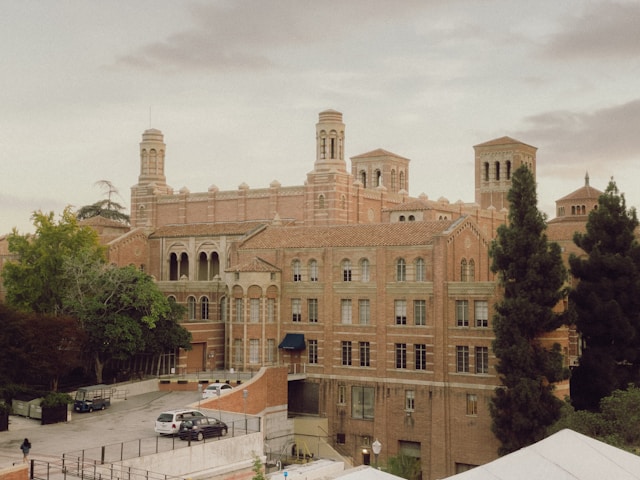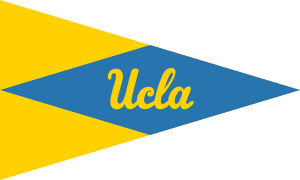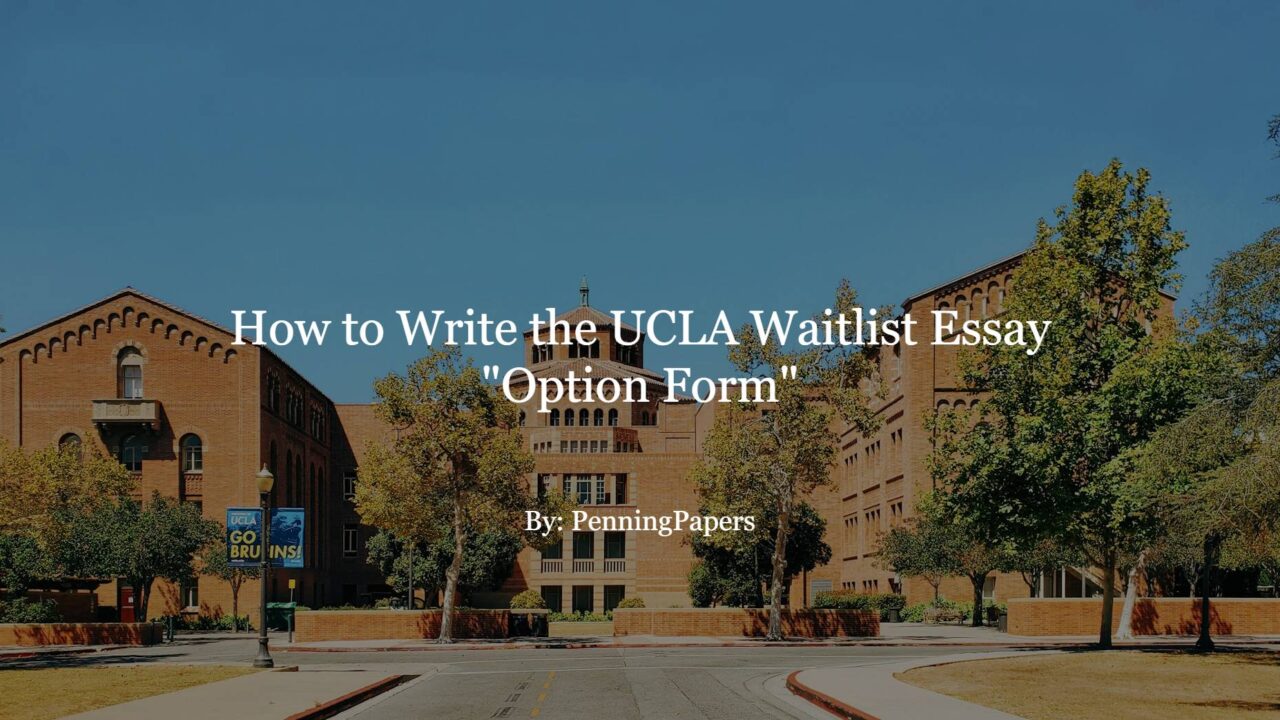Note: the deadline to submit the UCLA waitlist essay Option Form is April 15th.
Additionally, here are a few key takeaways from UCLA on the waitlist. This info was taken from their official website.
- Consideration for admission occurs if space becomes available after May 15th.
- The waitlist is by invitation only.
- Applicants must opt-in by April 15th through the My Application Status site.
- To be fair to all applicants, additional materials (including letters of recommendation) cannot be accepted and will not be reviewed if sent.
- However, there is space provided in the Waitlist Option form to provide updates and additional information.
- Students on the waitlist are not ranked, and we do not know how many students will accept our waitlist offer.
- We notify students as early as possible after May 15th, and we will update students throughout the summer.
- Applicants can be on the waitlist for more than one UC campus if offered the option. It is advisable to accept another college’s offer before their deadline, as being on the waitlist does not guarantee admission.
- Changes to the Waitlist Option form can be made until April 15th, after which no further changes will be accepted.
- Additional information for waitlisted applicants, including FAQs, can be found through the My Application Status site.
Table of Contents
- How Important is the UCLA Waitlist Essay / Option Form?
- UCLA Waitlist Essay Prompt / Option Form
- How to Write the UCLA Waitlist Essay / Option Form
- Example UCLA Waitlist Essay / Option Form
- Final Thoughts
How Important is the UCLA Waitlist Essay / Option Form?

Want to know something weird?
UCLA’s waitlist acceptance rate is unusually… good! We’ve pasted this excerpt from our sister article on surviving the UC waitlist process below.
“Believe it or not, UCLA’s 2023-24 waitlist admissions cycle was actually quite positive considering it’s daunting regular acceptance rate. In fact, out of 11,725 students who opted into the waiting list, 1,404 were accepted. That makes UCLA’s 2023-24 waitlist acceptance rate 11.97%.
That’s actually slightly higher than their regular 9% acceptance rate! Funny how the world works!”
How to Survive the University of California (UC) Waitlist 2024-25
–PenningPapers
Below is a visualized version. As you can see, UCLA’s waitlist acceptance rate is drastically volatile. Some years suffer from single digit acceptance rates.

Even in the “good years” the acceptance rate is less than 20%
Thus, it’s absolutely crucial that your UCLA waitlist essay is written well. You can’t afford to skimp out. With a volatile acceptance rate prone to change every year, there’s no telling whether a solid waitlist letter will even save you.
Nonetheless, all you can do during the waitlist process is cross your fingers and write a solid waitlist essay. And, chances are, you’ve already done the first part.
But, here’s a little secret.
Most of the UCLA waitlist essays we’ve seen were not that good. In fact, most students actually don’t fill out the UCLA waitlist option form properly. They include information that doesn’t actually help them get accepted. Thus, writing a solid waitlist essay can actually help you cut through most of the competition. (perhaps giving you a more competitive edge than you expected.)
That brings us to our next point: how do you write a solid waitlist essay?
UCLA Waitlist Essay Prompt / Option Form

UCLA’s waitlist essay prompt (option form) asks you to write an optional 7,000 character submission once you’ve accepted your spot on the waiting list.
Hint: if you want to be competitive, you’ll want to write a submission. So, the waitlist essay isn’t really optional.
Now, should you use up all 7,000 characters?
That depends. Some extenuating circumstances, convoluted updates, and new information warrant it. These topics often reshape how admissions officers see the original application.
Here’s an example. A recent ADHD diagnosis implies all student achievements required more grit and determination to achieve. Topics like these muddy the waters with multiple implications. Thus, they may demand more characters to “do the topic justice.”
Meanwhile, students with simple answers like increases in academic performance may require fewer characters.
Thus, as a general rule, you should only use however many characters is required to accurately explain your situation. Do not inflate or deflate character count just for the sake of it. Use however many characters you need and deem necessary for full range of articulation.
Hint: most students don’t expand enough on the “boring stuff.” They quickly glance over it in their UCLA waitlist essays without explaining why it makes them a solid candidate. Chances are, you’re missing a few positive inferences you could explain about your “boring updates!”
Remember: length is not what matters here. It’s about the quality of your writing and the value you bring through new and compelling information. Don’t copy and paste old what you already put in your previous application just to fill up space.
How to Write the UCLA Waitlist Essay / Option Form

Keep it Classy
Start by thanking the admissions office for their time. End by thanking the admissions office for their time once again. It’s the polite thing to do! After all, they’re going out of their way to give your application a second look!
Now, this may seem like basic advice that doesn’t need to be stated. But, here’s the thing. Professionalism and presentation go a long way in writing a solid UCLA waitlist essay. For, presentation can leave a good or bad taste in one’s mouth. And, while it’s great to leave a good taste in one’s mouth, it’s certainly bad to leave a terrible taste in one’s mouth. The worst thing you can do is give admissions officers the “ick” during the waitlist process.
First and last impressions matter.
So, act like it by thanking them for their time and being civil. No resentment. And, especially no saltiness in your writing. Be civil. Keep it classy.
Oh, one more thing: don’t be afraid to be unconventional in your sentence structure and grammar. That doesn’t mean break grammatical rules or anything. Rather, don’t be afraid to write in a sophisticated manner beyond the 2nd grade level. Your UCLA waitlist letter is partly a persuasive letter, after all. So, don’t be afraid to deploy em dashes and semicolons; don’t be afraid of varying your sentence length. You don’t need to write like a Victorian poet or anything. But, you can have a more sophisticated writing style than just “subject + predicate + period.” Again, keep it classy!
New and Compelling Information.
The UCLA waitlist essay should include new and compelling information. This includes anything not originally stated in the previous application.
Here’s what people get wrong, however.
Your new information can still be in the same topical vein as your original application’s content. You can’t talk about the EXACT SAME thing in your original application. But, you CAN QUALIFY existing content in it.
Here’s an example.
Let’s say your GPA went from 3.85 to 3.75 from Sophomore year to Junior year; and, you addressed this as being due to Clinical Depression in the additional comments section. However, you failed to mention that your low performance was also due to growing familial problems arising from financial issues. You won’t be able to talk about Clinical Depression in the UCLA waitlist essay, as that’s not new information. But, you can talk about the financial issues since it wasn’t included.
Here’s another one.
Let’s say you recently earned an award in Speech and Debate. You’ve been a member since your Sophomore year; and, this is the first time you won an award. You placed first in a competition for speech. While you can’t talk about being in Speech and Debate and the leadership positions you held because it’s already been stated in the ECs list, you can talk about the competition.
Remember: your perspectives should highlight WHY your new information is worthy of reconsideration. Make the connection for admissions officers. Why does your new information provided warrant admissions officers to accept you from the rest?
Maybe the increase in academic performance shows you’re willing to work hard even after the admissions process has concluded. Or, your new leadership skills demonstrate a level of passion and love for your craft that exceeds banal reputation-seeking.
Be specific when making these connections! After all, it’s what your acceptance hinges on!
What Topics Do I Talk About in my UCLA Waitlist Essay?
- Grades.
- Share your Fall and Winter grades if they’ve improved or are already very high. Additionally, share the courses you plan to take in the Spring if they’re rigorous. Admissions officers love to see that your academic performance trends upwards. Additionally, they love to see students pushing themselves even past admissions season.
- Extracurriculars
- These include things outside the classroom but inside the school. Don’t just repeat what you’ve said in your previous application. Instead, qualify it with new information like updates or new positions you’ve earned. (Example: earned title of club president for FBLA)
- Personal Projects
- These include things you’ve worked on outside the classroom and school. So, YouTube channels, fiction writing, small businesses, and designing 3D models are all fair game. Any projects you conduct outside the influence of school is more profound than you may expect. For, it shows a level of grit, motivation, and drive to pursue interests outside of external institutions. It also shows a level of self-starter personality, which may work well in impressing admissions officers.
- Research
- Most high school students are not conducting research. Period. But, if you have had research that you worked on since the application, then certainly include it! Don’t forget to include what you’ve worked on and especially what you’ve learned during the experience.
- Internships or Jobs
- The same rule applies to research. Make sure to connect why your experience makes you a solid candidate. And, show what you’ve learned on the job or internship. Chances are, you learned a lot more than you expected.
- New Awards and Recognition
- This is one of the best topics. No shame if you don’t have any. But, if you do, congrats!
- Why UCLA
- Connect why certain clubs, courses, environment / culture, or professors would suit your needs nicely. Remember: you’re not just attending college to get into a great career that provides a hefty paycheck. You’re also going for a great college experience. You’ll make amazing friends. There’s a lot to attending UCLA; so, specify what your needs are in a college and how UCLA fits those!
It’s About YOU…Well, Sorta…
Sure. The admissions office wants to know about you.
However, it’s also about them.
UCLA wants to know what you can provide for them. How much value can you provide to the school considering they already have most of the students they want? Is there something unique about YOU that would greatly benefit THEM in the future?
This is where you need to get creative.
Imagine yourself in the university’s shoes. What would they want to see in a student? Or, better yet, what kinds of “assets” are they thinking of accepting into their campus? When you imagine yourself as a valuable asset who provides quality to the school both in and out of the classroom, you’ll write your letter more empathically. In fact, your letter should be focus on both you and what you can provide to the school.
So, while you may hear people say “The UCLA waitlist letter is about you!” that’s technically true. You shouldn’t focus on irrelevant content. But, it’s also about what you can provide to the school. UCLA scrapes through the waitlist pool to see who would be worth including into their incoming class —especially in terms of “what their incoming class is missing.” So, put “giving value to the school” as your top priority.
Attitude: It’s More Important Than You Think.
This is a subtle point; but, it’s an important one. UCLA —and realistically any college for that matter— can infer a lot from your waitlist letter’s attitude.
Admissions officers can read between the lines better than you think. Even if they glance through your waitlist letter, they can make inferences about your character that are quite accurate.
For instance, they can feel resentment and envy written in your words even when you try to contain it. They can tell when you’re trying to grasp at straws to say anything —anything at all— to get them to accept you. In other words, they can sense your desperation and all other negative emotions.
Don’t let these emotions bleed through your UCLA waitlist essay. The attitude you demonstrate during the waitlist process is almost as important as the waitlist essay content itself. If you show resentment, frustration, or desperation whilst filling out the option form, it’s a bad look for admissions officers. And, no one wants to accept someone who holds their school to the highest regard, even more so than being civil and professional.
The UCLA waitlist essay should demonstrate gratitude, humility, and excitement for the possibility to get accepted. Having this mature and positive mindset will give admissions officers more reason to accept you.
Of course, don’t try to force this. You want your writing to appear organic and natural. So, if you’re still writing the UCLA waitlist essay with clenched fists and tears rolling down your face, take a breather. Relax, and go for a walk. Don’t write until you’re ready to tackle the waitlist essay without being emotional! Trust us, emotionally resentful writing happens more than you think —especially with UCLA being so many people’s dream school!
Show You’re Different.
Let’s be frank.
Most students on UCLA’s waitlist are smart enough to not get outright rejected. And, with such slim acceptance rates, it’s fair to assume students will fight tooth and nail to get their foot in the door.
Yikes.
It’s therefore your job to think of ways your new information can stand out from the rest of the competition.
You’re competing for a spot alongside many students whose grades improved, just like yours may have. And, you’ll be competing against other students with newly earned awards, leadership positions, research, etc. Think about what’s special about you use that to your advantage.
Now, what do you do if your new and compelling information isn’t unique? Well, it’s time to look at it from a different perspective!
Let’s take the grades example again.
What’s so special about grades improving from Junior to Senior year? Well, probably not a lot on the surface. But, there are implications that many people haven’t thought of.
Think about the ways you increased your grades. While you may say grit and determination got you there, that’s what everyone else would say. Chances are, you’ve had to have a clear and calm mind to get those grades. Patience and self-forgiveness are often highly overlooked as topics. Video games and sunlight exposure fall in that category too. Think of the things other students are NOT talking about, and consider writing about those!
The same rule applies to reasons why you’re a solid candidate. Think of ways you may be a great addition to the UCLA community that other people haven’t considered. Maybe there are weaknesses in UCLA’s club communities that your new experiences can compensate for. Or, the new study methods you used to increase your grades can be used to explore your field in an interdisciplinary manner —granting you lateral learning that others may not have. The more niche, the better! After all, this is about making yourself stand out!
Example UCLA Waitlist Essay / Option Form

Note: this UCLA example waitlist essay worked only FOR THE STUDENT. In other words, what may work for them “might” not work for you. Just because they talk about improvements in their academic performance and extracurricular updates does NOT mean that you MUST talk about these either. This is just an example of a successful waitlist letter.
So, do not copy and paste this.
“Dear University of California, Los Angeles Office of Admissions,
Thank you for taking the time read through my waitlist letter. UCLA remains my first choice institution; and —should I be accepted— I am certain beyond a doubt I will attend.
With that in mind, I would like to provide additional information since submitting my application: my academic performance, leadership updates with DECA, and personally-conducted Psych project. I believe these updates will provide a clearer picture of my application, and hopefully provide a more in-depth perspective of both my candidacy and character as a hopeful UCLA applicant.
To start, my academic performance since my application have increased from a 3.7 to a 3.85. While I admit I’m still allergic to Mathematics, I discovered my aversion to numbers would not fare well as a future practicing therapist. For, grounding my work in statistical knowledge would be crucial to helping patients. Thus, I’ve taken the time to adopt a more quantitative and computational mind in my Mathematics classes. This newfound mindset has shaped my relationship with numbers, and inexorably increased my GPA where my “blemishes” were most prevalent.
Additionally, I was recently elected as our school DECA club’s president. Our organization was mostly focused on getting students into the world of Speech and Debate; however, my experience most recently required collaboration with my fellow marketing and outreach officer. We both experimented in multiple marketing methods to help increase DECA’s club membership, some of which involved social media outreach, school newspaper copywriting, and website blogging. Interestingly, experimenting with ads through A/B testing revealed to both my cabinet members and I many new business and marketing methodologies that we’re hopeful will translate into our higher education projects. I’m especially excited to collaborate with UCLA’s diverse community and share some of the outreach skills with some of the clubs I plan to join here such as Debate Union and Active Minds. If possible, I’d love to experiment with some new copywriting and SEO blogging strategies I’ve implemented in DECA with Active Minds’ blog —especially in interlinking social media platforms to increase authority and visibility.
Also, I’m very excited to discuss the recent Psychology project I’ve conducted on my own time. I run the [REDACTED] YouTube channel, where I conduct interviews with students and discuss their personal grievances. While the channel does not serve as therapy, it serves as both an educational source for viewers as well as a podcast-format sharing important ways externalities like Capitalism, gender, and politics impact mental health and wellbeing. Admittedly, this has been a very difficult and convoluted project. For, it required I learn videography, lighting, quick editing, and content creation very quickly. In addition, I learned much more about the interdisciplinary relationship psychology has with other fields like Economics, International Relations, and Sociology. So, it’s both increased my confidence in my field whilst humbling me to just how much I’ve still yet to learn.
Nonetheless, these experiences have revealed to me that my learning journey is just beginning. My academic experience since my submission has evolved in just over a few months. And, I’m excited to see where this goes at UCLA. I can’t wait to see how a quantitative slant to psychology would qualify my experience studying at UCLA. Translating what I’ve learned as the president of my DECA club also makes me excited to see what other clubs at UCLA have in store for me. And, my recent YouTube project in Psychology is something I hope to carry over to UCLA; for, I’m curious about interviewing fellow students in the LA region and cross examining their responses with those of students in other campuses for my upcoming series.
Ultimately, I can’t wait to see how the coming years at UCLA will fare. Should I be accepted, I am certain to expand my personal projects to include the UCLA community; and, I’m hopeful for what the future holds. Thank you once again for taking the time to consider my application.
Best,
[REDACTED]”
Example UCLA Waitlist Letter –PenningPapers
Final Thoughts

Remember: you DO NOT need to send any official school transcripts. And, you don’t need to send any other additional documents, pdfs, LOCIs, etc. If the admissions office isn’t asking for it, they don’t want it. Cut and dry. Easy.
Additionally, remember to breathe. This process is brutal and can be difficult emotionally. Don’t forget to take a break and relax during this time.
After all, UCLA typically provides waitlist decisions after May 15 and proceeds to provide waitlist decisions throughout the summer. So, it’s a long time before you’ll get any closure!
There’s no point in pestering them while they’re making a decision, though. So, don’t call or email them incessantly. A few calls or emails with genuine questions is fine. But, don’t bother them any more than is absolutely necessary. The last thing you need is a bad taste in their mouth.
Oh, and speaking of bad tastes, you don’t want your UCLA waitlist essay to give a bad impression. As we said, impressions can make or break your waitlist chances. So, don’t take the risk of writing a poor UCLA waitlist essay. Consider speaking with a professional college admissions consultant and essay editor here at PenningPapers. Schedule a free consultation with us, and we’ll get back to you within 24 hours. We can help you from beginning till end write a solid waitlist essay that gets your foot through UCLA’s doors, as we have with many other students!

